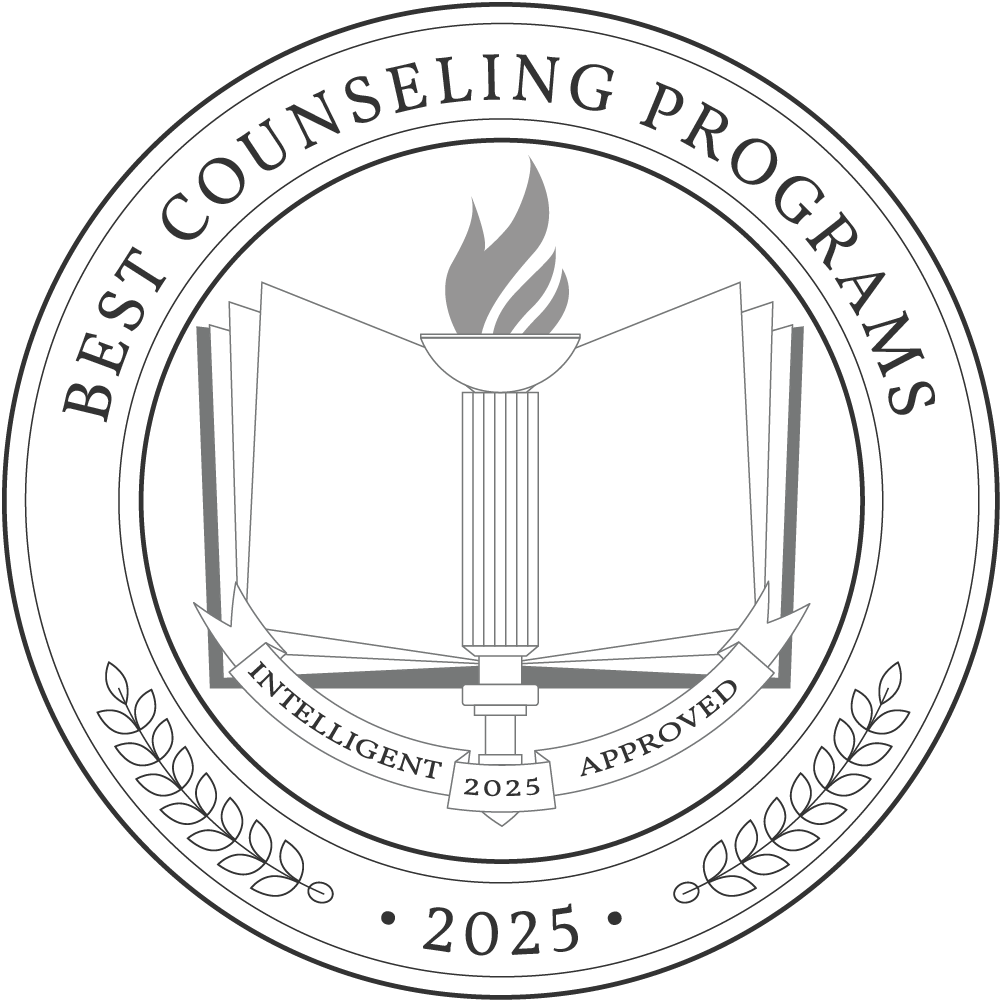Whether they work in schools, clinics, or residential centers, counselors provide much-needed assistance to people in their communities. They apply counseling principles to help individuals and groups achieve specific goals in their mental and emotional health, such as overcoming addiction or starting a new career. This work begins with courses and licensure in counseling degree programs.
The cost of counseling degree programs in 2023 ranged from $3,885 for an associate degree, $27,673 for a bachelor’s degree, and $20,513 for a master’s degree. When you graduate from a counseling degree program, you can become a substance abuse and behavioral counselor, making an average of $49,710 (as of 2022), or a school and career counselor, earning an average of $60,140. With additional postgraduate schooling, you can apply a counseling degree to a clinical and counseling psychologist career and earn an average starting salary of $90,130.
Why Trust Us
The Intelligent.com Higher Education Team is dedicated to providing students with independent, equitable school and program rankings and well-researched resources. Our expert-driven articles cover topics related to online colleges and programs, paying for school, and career outlooks. We use data from the U.S. Department of Education’s College Scorecard, the National Center for Education Statistics, and other reputable educational and professional organizations. Our academic advisory team reviews content and verifies accuracy throughout the year for the most current information. Partnerships do not influence rankings or editorial decisions.
- Analyzed over 2,000 national, accredited, and nonprofit colleges and universities
- 800+ rankings pages are reviewed and updated yearly
- Content is informed by reputable sources, surveys, and interviews with academic advisors and other experts
- Over 100 data points are reviewed for accuracy and quality throughout the year, including sources
How we rank schools
Our list features the best Counseling degree programs at top colleges nationwide. Each school featured is a nonprofit, accredited institution — either public or private — with a high standard of academic quality for post-secondary institutions.
We evaluated each school’s program on tuition costs, admission, retention and graduation rates, faculty, reputation, and the student resources provided for online students. We collected data from trusted sources like the National Center for Education Statistics, individual school and program websites, school admissions counselors, and other data sources. Then, we calculated the Intelligent Score on a scale of 0 to 100 based on the following criterion:
Academic Quality:
- Admission rate versus enrollment rate
- Retention rate of students who return after year one
- Accreditation status (regional and programmatic)
- Nonprofit status, both private and public institutions
Graduation Rate
- Overall graduation rate
- Total number of currently enrolled students, including diversity metrics
- Student-to-faculty ratio
Cost and ROI
- In-state and out-of-state per-credit tuition rates and fees
- Required credits to graduate
- Earning potential after graduation
- Availability of federal student loans, scholarships, and other financial aid options
Student Resources
- Available student services for online-only and hybrid programs
- On-campus amenities like tutoring centers and the number of libraries
Read more about our ranking methodology.
Best 8 Accredited Counseling Degree Programs
FiltersInstitution Type
Status
- Intelligent Score
- Alphabetically By University Name
- Acceptance Rate
- Enrollment
- In-state Graduate Tuition
- Out-of-state Graduate Tuition
- In-state Undergraduate Tuition
- Out-of-state Undergraduate Tuition
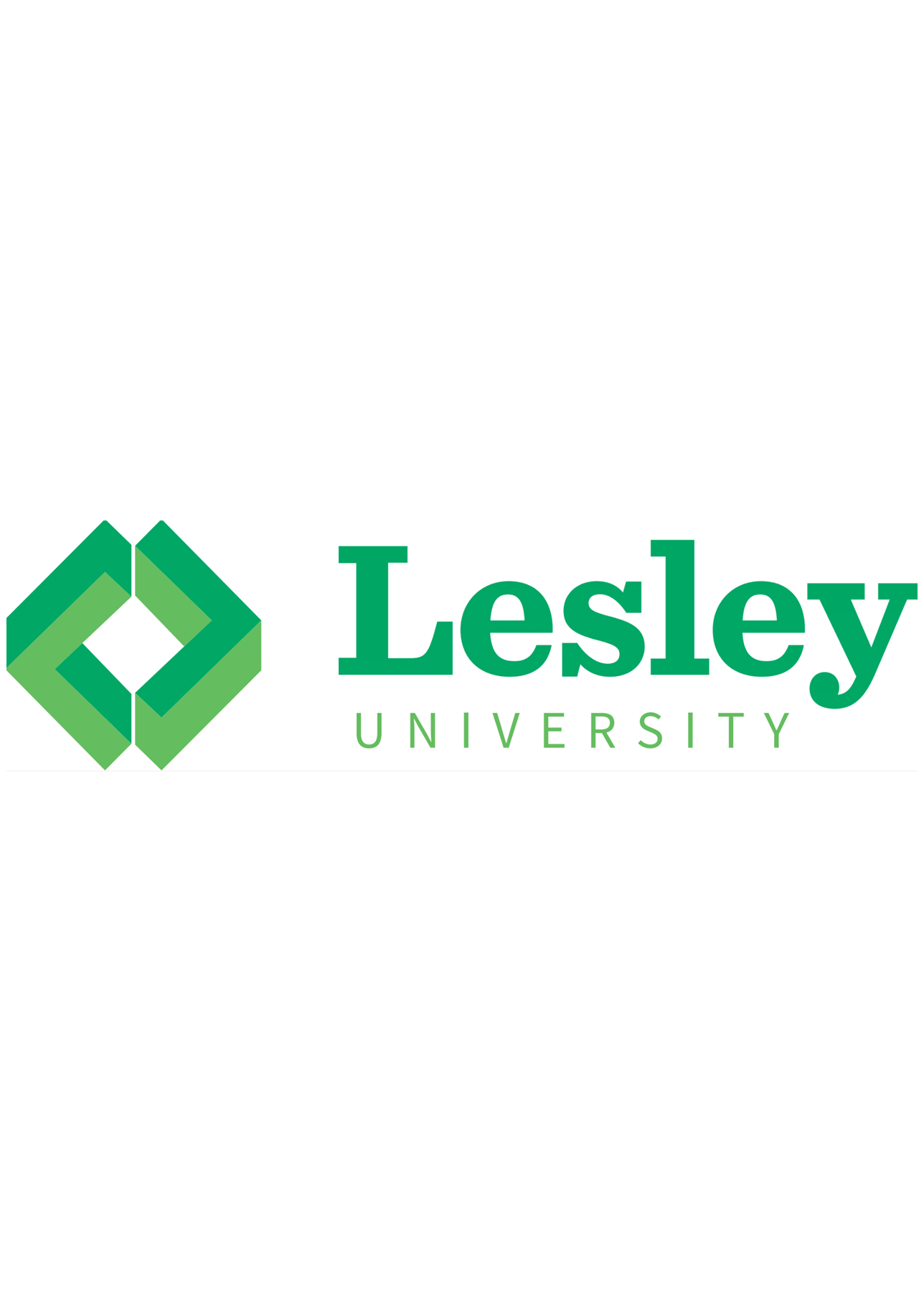
Lesley University
Intelligent Score: 99.85In-state: $29,200
Out-of-state: $29,200
In-state: $18,900
Out-of-state: $18,900
SAT: N/A
ACT: N/A
$1,063
On-Campus
New England Commission of Higher Education
120

Arizona State University
Intelligent Score: 98.27In-state: $10,710
Out-of-state: $28,800
In-state: $11,720
Out-of-state: $11,720
SAT: 1100-1320
ACT: 21-28
$574
On-Campus, Online
Higher Learning Commission
120

Liberty University
Intelligent Score: 96.67In-state: $14,791
Out-of-state: $14,791
In-state: $7,935
Out-of-state: $7,935
SAT: 1040-1250
ACT: 21-29
$661
On-Campus
Southern Association of Colleges and Schools Commission on Colleges
120
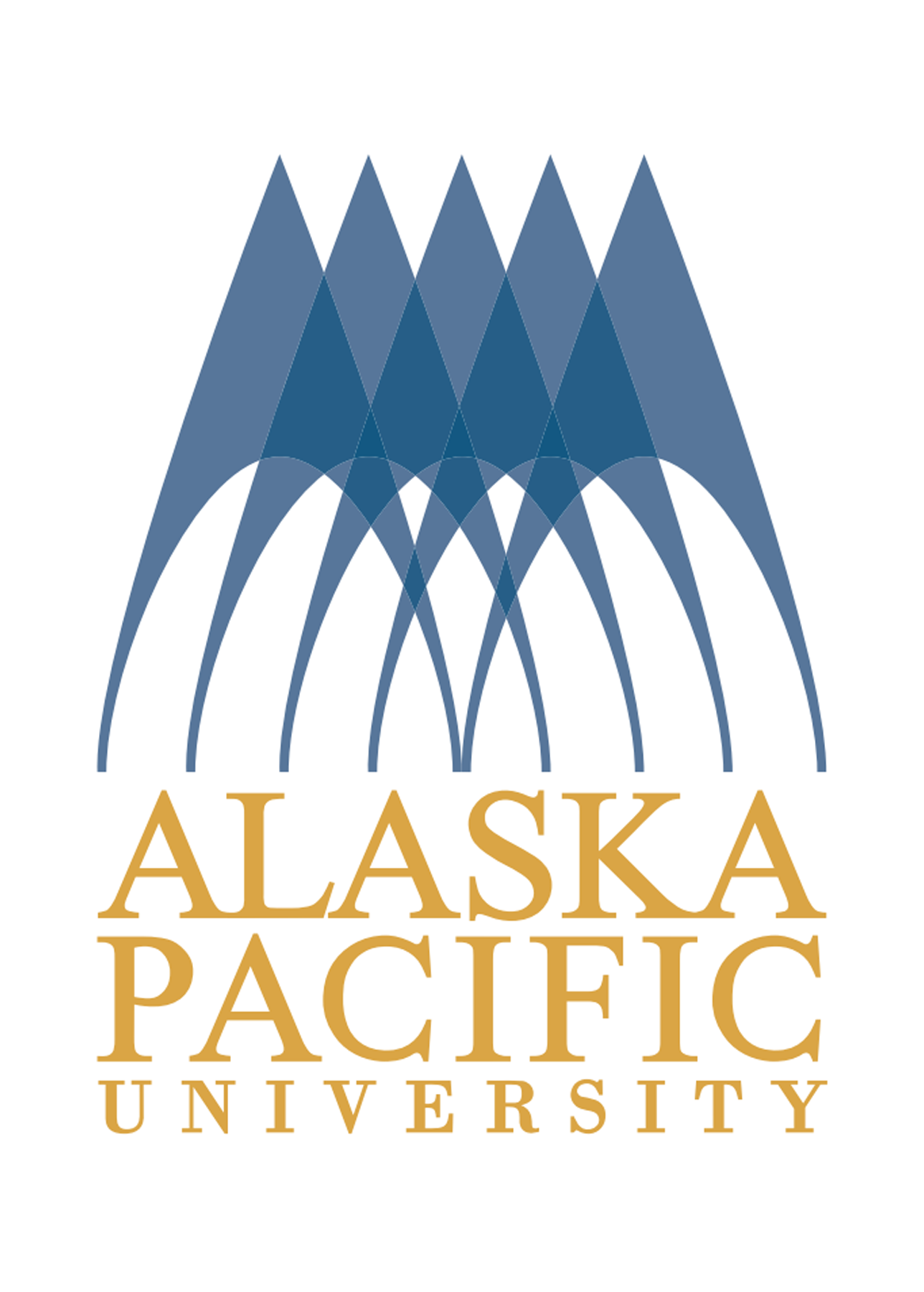
Alaska Pacific University
Intelligent Score: 95.39In-state: $20,350
Out-of-state: $20,350
In-state: $11,700
Out-of-state: $11,700
SAT: N/A
ACT: N/A
$565
On-Campus
Northwest Commission on Colleges and Universities
128

New Mexico State University
Intelligent Score: 93.02In-state: $6,041
Out-of-state: $22,507
In-state: $4,981
Out-of-state: $4,981
SAT: 950-1150
ACT: 17-23
Resident: $224 - $261
Non-Resident: $975
On-Campus
Higher Learning Commission
120-121
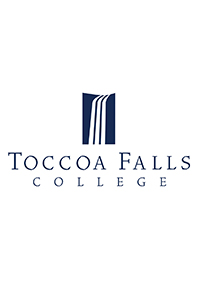
Toccoa Falls College
Intelligent Score: 91.95In-state: $42,920
Out-of-state: $42,920
In-state: $41,700
Out-of-state: $41,700
SAT: 990-1240
ACT: 18-24
$611 - $968
On-Campus
Southern Association of Colleges and Schools Commission on Colleges
126

Grace College
Intelligent Score: 91.78In-state: $42,480
Out-of-state: $42,480
In-state: $33,100
Out-of-state: $33,100
SAT: 990-1220
ACT: 19-27
$676
On-Campus
Higher Learning Commission
120
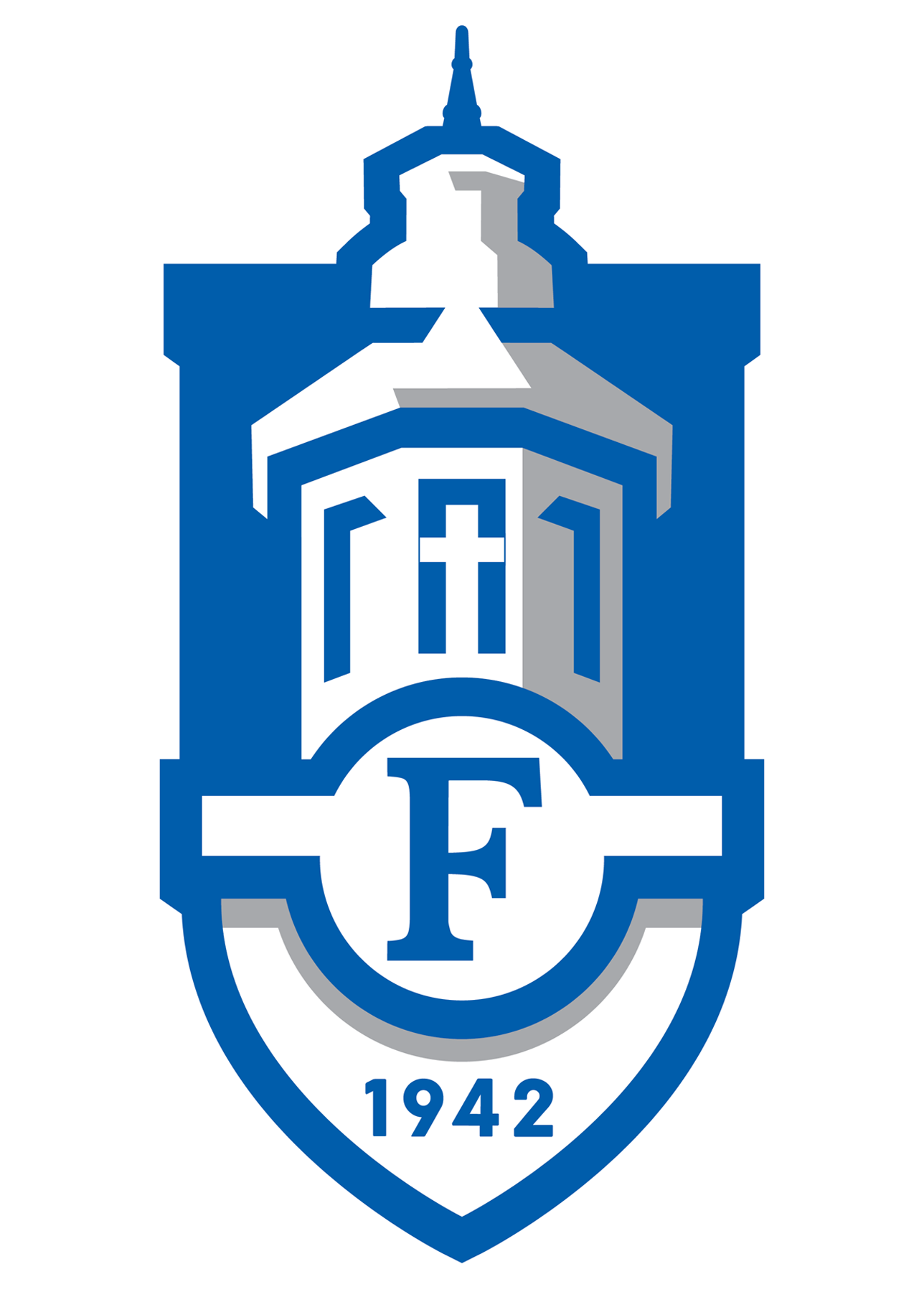
Faulkner University
Intelligent Score: 91.41In-state: $21,000
Out-of-state: $21,000
In-state: $10,350
Out-of-state: $10,350
SAT: 1020-1175
ACT: 18-23
$645
On-Campus, Online
Southern Association of Colleges and Schools Commission on Colleges
121
How to Choose a Counseling Degree Program
Choose your area of study
There are two main career paths in counseling: mental health counseling and school counseling. When choosing an area of study, you can specialize further within these paths.
Those pursuing a career in mental health and clinical counseling typically graduate with degrees from colleges of science (Associate of Science, Bachelor of Science, Master of Science), which integrate statistics and data analysis in a research-based curriculum. These degrees include:
- Associate of Science in counseling
- Bachelor of Science in counseling
- Bachelor of Science in addiction counseling
- Bachelor of Science in psychology with a specialization in counseling
- Master of Science in counseling studies
- Master of Science in professional counseling
- Master of Science in clinical mental health counseling
To become a school counselor, find a humanities-focused counseling program that links psychology to social sciences in a college of arts (Associate of Arts, Bachelor of Arts, Master of Arts). Counseling degrees on this career path include:
- Associate of Arts in counseling
- Bachelor of Arts in counseling
- Bachelor of Arts in psychology with a specialization in counseling
- Bachelor of Arts in social work
- Master of Education in school counseling
- Master of Arts in counseling psychology
Practicing as a counselor often requires additional certifications after graduating with a counseling degree. Completing a postgraduate degree in counseling often leads to licensure — for example, a substance abuse or mental health counselor can become a licensed mental health counselor (LMHC) or licensed professional clinical counselor (LPCC). School counselors earn state-specific credentials, such as the Pupil Personnel Services Credential with School Counseling Specialization in California.
Research schools and programs
Choosing an accredited counseling degree program is the first step in your counseling education journey. Find a school that is institutionally accredited by a body like the
Council for Accreditation of Counseling and Related Educational Programs (CACREP) to ensure you can easily transfer credits and degrees between other accredited schools.
When it comes to finding accredited counseling programs, check that your program has been accredited by the American Psychological Association. The APA regularly assesses counseling and psychology programs for the educational rigor and adherence to professional requirements that graduating counselors will need.
Spend time researching your desired department and school. Talk to graduates from the counseling program and read literature written by its professors. If you have more questions, contact program representatives for details about coursework or program requirements.
Prepare for tests and applications
Though each counseling program is different, be prepared to submit application materials such as an application letter, letters of recommendation, and transcripts. Visit your program’s website for an application deadline and a more specific list of requirements, including a minimum GPA and prerequisites.
Bachelor programs in counseling will likely require minimum SAT and ACT scores, so take these tests until you’ve earned a score that represents your ability. Science and research-based counseling programs may look more closely at your math scores, so get those as high as you can. For postgraduate counseling degrees, take the GRE as far in advance as possible.
Select your program
Your desired career path and interest in coursework can help you choose the right counseling program. If you’d like to learn about applying research and data analysis to the practice of counseling and scientific psychology, find an institution with a School of Behavioral Sciences or a School of Health Sciences. Future school counselors will likely earn their degrees through a School of Education. If becoming a school counselor is your goal, choose a school with a strong educational program.
Examine your schedule and living needs as you decide between counseling programs. Some students prefer immersing themselves in full-time programs, while others need the flexibility of a part-time counseling program as they work in other jobs or take care of family members. Consider whether you’ll need to live on campus as you narrow your options.
Determine how you’ll pay for your degree
Expenses in a counseling program include tuition, fees, educational supplies, transportation, and room and board — but you may not have to pay for all of that. Fill out the Free Application for Federal Student Aid (FAFSA) form to find out how much financial aid you qualify for, and inquire about scholarships and grants that you don’t need to pay back after graduation. If you’re already working in a related career, your employer may be able to provide employer tuition assistance to help you advance in your education.
Talk to a financial aid officer at your future school and see if they offer additional benefits. Program representatives can also tell you if holding a job to cut costs while in school is feasible.
What Can You Expect From a Counseling Degree Program?
Counseling program coursework varies by career path, but generally speaking, the curriculum of a counseling degree program incorporates data-based psychological studies into a counseling context. Typical courses in a counseling program include:
Potential courses you’ll take in a counseling degree program
- General psychology. This course introduces students to fundamental theories and research in psychology through many perspectives, including biological, societal, cognitive, and clinical psychology.
- Marriage and family. Apply concepts from group therapy and psychopsychology to a study of historical and modern developments of the family unit. Students examine family systems and trends in family therapy with research projects and case studies.
- Child development. Connect classical models of child development with modern applications as they relate to patterns and milestones in different phases of childhood (infant, toddler, and school-aged).
- Group counseling. Study group dynamics, leadership roles, developmental stages of a group, and a counselor’s role in group therapy. This class often involves theoretical and experimental work to see how group dynamics affect a clinical approach.
- Crisis intervention. Counselors-in-training learn individual and community-based approaches to assessing and handling mental health crises, including substance abuse, self-harm, and violence resulting from long-term psychological trauma.
Counseling Degree Frequently Asked Questions
How do I apply to a counseling degree program?
Your program’s website should contain application requirements and deadlines. Some counseling degree programs may require clinic or experience hours, test scores, a minimum GPA, and letters of recommendation along with your application.
Begin investigating your desired schools around a year before you plan to attend. For competitive programs, consider researching schools even earlier to ensure you have plenty of time before the application deadline.
How much does a counseling degree cost?
Tuition and fees for an associate degree cost $3,885 in 2023. With room and board, the cost increases to $12,300.
When you begin a bachelor’s program in counseling, the average cost for tuition and fees is $27,673 (and $30,884 with on-campus housing). A master’s degree in counseling costs an average of $20,513 annually.
How long does it take to earn a counseling degree?
A counseling degree takes anywhere between two and six years to earn, depending on which degree you’re working toward. An associate degree requires 60 credit hours, which takes two years of full-time study to complete. Bachelor’s degrees in counseling include 120 credit hours of instruction and coursework, and full-time students usually finish these degrees in four years. A 60-unit master’s degree in counseling takes another two years of full-time study to finish.
Taking a part-time counseling program may alter this timeline, as you take fewer units each year and complete them more gradually. Some counseling degree programs offer accelerated tracks, including one-year master’s degrees, making it possible to earn your degree in even less time.
